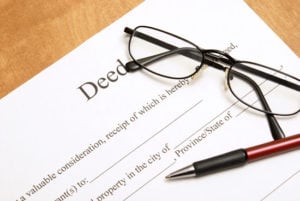
A caller from Somerset asked, “If you’ve been married three years and you buy a house and your spouse is not on the deed for the mortgage, does the spouse have a right to own that house if they’ve lived in that house for one year following a divorce?”
Steven Sabra answered that it does become part of the divorce case, it is an asset of the party’s. The idea of it being just in one person’s name, and the other not having equity, is incorrect, and it does not hold up in Massachusetts. What you have to look at is where the money is coming from to buy the house and who has paid bills related to the house. That goes into the equation for who gets the house after a divorce. The idea of it being under one person’s name but not the other in the deed and therefore the other person does not have a claim to it in the divorce does not hold up in Massachusetts.
The answer is two-fold: It becomes part of the divorce case. Also, if one party had the money for the down payment and can afford the house but the other cannot, then the home would probably go to that party. But, again, the idea that it’s in one name or the other does not come into much importance. However, if you have a situation where someone owned the house alone for ten years, then they get married, then divorced, the other person would have little claim to the house. But the main consideration is who paid the down payment and expenses. Also, if there’s no equity in it, then it does not really matter.
It is a possibility that, until the house is sold, one party could make the other pay until the house is sold, although, it can depend upon other factors as well. If one party lives in the house with two children, they’re going to consider that factor as well. A judge could order that the party that does not live there must still pay a portion of the mortgage if his or her children live there.
Four Important Factors You Must Do Before Signing a Contract for a Deed to a Home
Buying a home can be a very complicated process. There are many legal risks and obligations that can make signing a contract for a deed very stressful for everyone. However, in the end, it can lead to a very successful and happy long-term home ownership. Here are four things you must be sure to do before signing a contract for the deed to your new house:
- Be sure to get an inspection and an appraisal. It is very important to know what you are buying and how much it is worth. Be sure to ask the seller for an inspection report. You should hire an inspector and appraiser of your own to see if it is a good house with a fair deal. You should also do this for your own personal safety and the safety of those who enter your future home. Another recommended action would be to call the city and county where the house is located for information on the value and condition of the home. Ask them if there are any citations or outstanding orders on the house.
- Be sure the seller owns the house. Just because someone is selling the home, does not mean they are the owner. Find out who the owner is before you buy the house. You want to know if there is a mortgage on the house and if it is in foreclosure. If it is in foreclosure, you run the risk of losing the home and everything you paid the seller if he or she loses the house. Once again, get in touch with the city to find out two things: If there are any pending charges to be billed against the owner and if the city requires inspection prior to sale. Then ask the county if the seller owes any unpaid taxes on the home, and if they do then the county may not allow for the contract to be recorded.
- Be sure you can afford the house. First find out the conditions of things such as the windows, roof, furnace, etc. for if there were any damages done to the home, and check if everything is in good condition or can be maintained within your budget. Figure out the annual property taxes and check if it is taxed as a homestead or non-homestead by calling the county. Be sure to review the proposed payment terms and find if the property taxes and insurance are included in the monthly payment or separate. Make absolute sure that you can afford the costs of the home at the current time before you sign off on it.
- Read the contract clearly. If you have any questions or concerns, be sure to ask. A couple things to keep in mind are:
- First, review your interest rate. Then, call several different banks, even ones you do not currently bank with, and compare the interest rate with a traditional mortgage interest rate. If you qualify for a traditional mortgage interest rate, then you would probably be better off purchasing a mortgage instead of the contract for a deed.
- A good piece of information to know that some people do not is to check whether or not you will be charged with a penalty for paying off the contract early.
- Also review the buyer’s monthly payment, insurance, taxes, and repair requirements on the house.
- Know when the balloon is due.
For over 35 years, the attorneys at Sabra and Aspden Law Offices have been handling cases in Fall River, Somerset, Swansea, New Bedford, and Assonet. They are the divorce and personal injury attorneys in Southern New England.


